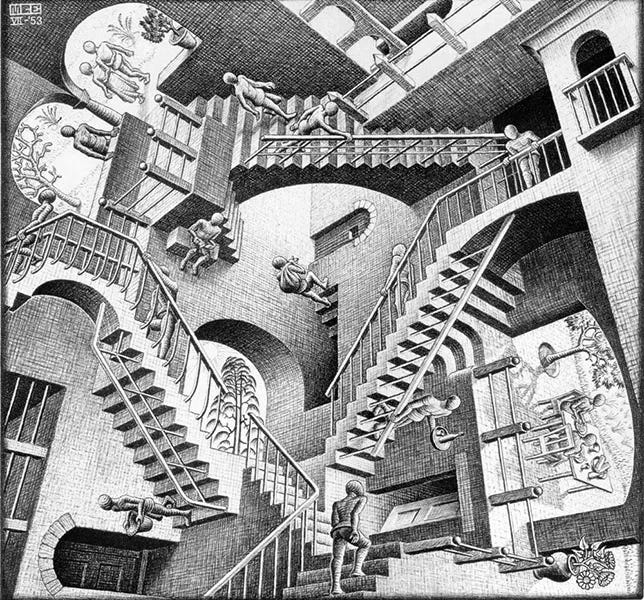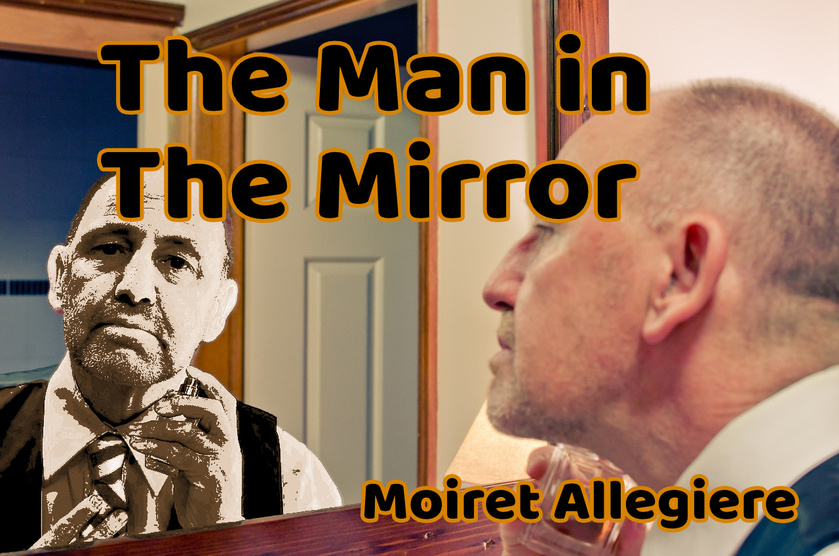This is a guest post from Moiret Allegiere. He has a great deal to say about our plight as men in today’s insane misandrist world. You can find his blog here.
__________________________________________________
Women can do anything men can do. And do it better. And do it in heels! So it is spoken. It is spoken, and so it has to be true.
Now – kindly deliver me from evil, and fetch me this woman who can stand behind my (almost) functional Agria 5300, mended to the best of my (lacklustre) abilities with only the finest rubber-bands and greatest duct-tape that money can buy.
Find me this magical mystery woman, so that she may mow the grass and the weeds of my bountiful fields, and do it better than me, and do it in heels to boot!
Get me this woman, show me that she can do this, and I shall fall to my knees right then and there and deliver her the finest blowjob hard work and sacrifice may buy.
There may be a certain animosity, a certain mean-ness in writing the above, but I am at the very least not condescending. I can not imagine thinking so little of women that their every act and action must, necessarily, be compared to the acts and actions of men as though men are the default, and women merely a shattered mirror-image of said men. Or, you know, made by one of our ribs.
Our strengths and our weaknesses as men is something that should be mirrored by the strengths and weaknesses of women. The way I see it, the way I understand it, we are meant to complement one another. There is little point to life, viewed from a purely biological perspective, except surviving and procreating. Does it not then make sense that the one can not do without the other; that the one must pick up the slack – so to speak – of the other? To co-exist and communicate, to cooperate, to not compete constantly.
Who does what matters little when there are things to do. What matters is that the things are done, and that they are done by those most suited to them. A strange and rather marvelous symptom of relatively easy lives, this, when one has the time and the inclination to fight over who does what, rather than seeing the things that has to be done as things that first and foremost has to be done. Particularly so when this fight involves which gender does what. Imagine seeing this from the outside, as someone completely alien to all this nonsense. It is a symptom of illness. A social malaise.

I believe that our greatest flaw as a society, as a civilization, as human beings is our ability to complicate matters to the point of utter absurdity. Even more so now than before, in this dawning of our great apocalyptic downfall. The absurd complexity of the M.C. Esher-esque Ziggurat of oppression-points and privilege-points constructed by cocaine-fueled sociopaths – excuse me – sociologists, and stamped and mailed and agreed upon by humanities-scholars crazy on brown acid should be seen as so ridiculous that Monty Python – in their hey-day – would stop and think that this, old chap, is a bit too absurd, wouldn’t you say, old chum, hey-hey… now, let’s get back to the guy choosing his method of execution be one where he is chased off a cliff by a horde of topless women wearing g-strings, and then for a spot of brandy, ho-ho.
Still – we accept this nonsensical screed. Probably due to feeling as though there is no choice but to accept this. After all – none of us plain proles could possibly have the mental awareness, nor the intellectual capability to argue with one so wise in the ways of science as to being unable to define a woman. Or, for that sake, having the testicular fortitude to engage with the ravenous mob of this’s and that’s and they’s and where’s and who’s and xir’s and xadam’s that will eventually descend upon one’s head for daring to state such heresy as “men have greater upper body strength than women”. Something that should, by all measures, be a fairly innocent factual statement. But it ain’t, brother, oh bother, it ain’t.
Unless one is a TERF, of course, who all of a sudden understood that there are differences between men and women which would give biological men an unfair advantage in women’s sports, despite these same pundits having said and pushed and meant and furthermore stated that there are no differences between men and women which would mean that men and women fare differently through life. But, oh, never mind – history is so easily rewritten. Obviously, this is nothing but a sinister MRA-plot to undermine and utterly destroy women in women’s spaces. For all that is bad in the world is the fault of those pesky men, after all. Never have I ever seen a greater case of “careful what you wish for” than this absolute stupidity. You might get what you wish for. Shame it bent back and slapped women across the face.
God-damn it; it was only men meant to be inconvenienced. Back to the drawing-board, ladies, and figure out how this – built on feminist rhetoric – is the fault of men.
It is not man-made horrors beyond our comprehension that will be our downfall. It is man-made absurdities beyond our comprehension. I don’t know whether to laugh, cry, or crawl to the top of our barn and wave my dick about with all the dick-swagger I can muster, as some sort of strange and arcane sign of dumbfounded masculinity. Things eventually reached a point where the only thing left to do is sit, mouth wide open in abject horror, and laugh hysterically at everything. Honk-honk, motherfuckers. Now – pass me some of that brown acid. Otherwise, I would not be able to comprehend anything happening. Get me an eight-bag while your at it, please?
I may be a simple man with fairly simple pleasures. Thank God—living within the rules of this absurdity would be an impossible task. Which, one would assume, is the entire point of the thing. After all – no-one is without sin. Not within Christianity, nor within the ziggurat of woke. Meeting life on fairly simple terms makes for a better life. Less complicated. But for people who, purportedly, believe in nothing except the things that they believe then and there which are not things but nothing, simplicity is akin to stupidity. And when the only identity they have is that of woke pundit, or something built upon meaningless pronouns… well, I fear that looking into the mirror would be akin to staring into the abyss for people who are so devoured by the ways and the world of woke. They would not like what stares back. The self first, the rest after. Clean your bloody room, bucko.
Women can do everything men can do. But men can not do anything women can do. Even men identifying as women. This despite us supposedly being completely equal and similar. In writing the first, a very simple thing springs to my mind: the empress aims to remove anything that is distinctly masculine from men themselves, and deliver the masculine into the hands of women.
This then leads to a lack of a genuine and singular masculine identity for our boys and for our young men. In short – the man in the mirror may well be there, but the man in the mirror has no face. The only solely masculine identity left is that of a father, which women can not replace. The hordes of feminism and the hordes of woke then seek to rip apart fatherhood itself.
Stop me if you’ve heard this before: Fathers are not as important as mothers, fathers are not nurturing or caring and are, really, not important in the lives of children.
Fret not – the state will provide, and the father shall be tarred and feathered and branded as a dead-beat loser. Should he seek through the courts to see his children, in the event of a divorce, this will be branded as him seeking only to abuse the woman further, using the courts.
An astute observer might notice that there is a certain pattern of projection in the mind of your typical garden-variety feminist. Anything a feminist says must necessarily be considered and pondered with this question in mind: “might this be a classic case of psychological projection?” Chances are the answer is yes. For a woman scorned may well use the children – by way of the courts – to further abuse a man. One notices, of course, that there is little care, little emphasis, on the well-being of the children. It is merely the mother that matters. Which, were all right with the world, should rightly be seen as utterly contemptible behaviour.
When our son was born, we got these papers to fill out. Our names, birthdate, things like that. The word “Father” was nowhere to be seen. There was “Mother”, “Together-mother” and “Partner”. Interesting, don’t you think, that the gender-neutral “Partner” did not apply to a female partner, who instead got the interesting term “Together-mother”? A female partner needed a specific feminine term. A male partner got the gender-neutral term. “Gender-neutral” has always meant that men shall not be named.
Admittedly, I am very happy that it did say “Mother” instead of the nonsensical made-up term “Birthing-parent”. Doesn’t change the fact that the word “Father” was nowhere to be seen, of course. Yet – women can be mothers, and that is a uniquely feminine identity. As it bloody well should be. Just as father ought to be a uniquely masculine identity. Yet – father as a masculine identity is being eroded. Just as any other positive masculine identity.
We are nothing no more, nothing but double negatives. Testosterone-poisoning and toxic masculinity, fragile masculinity and dead-beat dads. Single mothers should be celebrated on father’s day, which is a day that should really anyhow be replaced with “special person’s day”. For men can not have anything for men and for men only. Women may feel slighted and left out, and nothing is more important than a woman’s fleeting and momentary feelings. The notion that a man might feel somewhat perturbed and annoyed when he, as a father, is reduced to “Partner” whereas a female partner is elevated to “Together-mother” is either an alien notion or of little-to-no concern for the powers that be.
Fretting about this god-damned paper and this god-damned word might seem like a lot for relatively little. Yet, I don’t think that it is – I consider this to be yet another nail in the coffin for anything uniquely masculine. Might be a small nail, but that doesn’t mean that all the other nails are small, nor that small nails are incapable of closing the lid. It is worrisome. Genuinely so. On a personal note, I worry for the future of our young son. On a less personal, yet still important note, I worry for the future of all our young sons who may grow up never knowing themselves due to never being gifted a positive identity that is theirs and theirs alone; due to never finding anything that they must not immediately share with girls and with women.
Still, fret not and be not yet black-pilled, brothers: the man in the mirror may have no face, but it is getting easier for all to see that the empress has no clothes.

Moiret Allegiere
Moiret Allegiere (Born 1986) hails from Norway. A self-described scribbler of lines, juggler of words and weird pseudo-hermit, he became so concerned with the state of the world that he left his long and deliberate hibernation to wreak bloody havoc on the world of fine art and literature. his blog here. and one of his books here



















